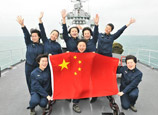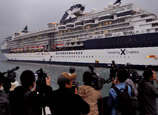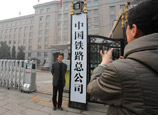
UnionPay cards help yuan become increasingly international currency
Zhou Kang relied solely on his Chinese UnionPay card to meet all bills during a seven-day trip to South Korea over the Spring Festival last month.
"Wherever I went I saw the logo for UnionPay and cashiers always asked me if I wanted to settle bills using it," said Zhou, 35.
From $700 for cosmetics to $2 for a coffee, transactions were smooth and it saved him a lot of time and the cost of converting Chinese cash into a foreign currency. Zhou also received a 6 percent discount at Lotte Mart, which was holding a UnionPay card holder's special offer during the festival.
Zhou was among hundreds of thousands of China UnionPay card holders who traveled abroad during the Spring Festival, helping to boost the overseas transactions of the bank card by 33 percent year-on-year, according to its own statistics.
In Cambodia, Thailand, South Korea, Malaysia, Singapore, Europe, the Middle East and the United States, UnionPay posted a more than 40 percent growth in business.
However, that gradually changed. "It started with some hotels and department stores in London such as Harrods and Selfridges. Then an increasing number of places I visited often, such as shops around Covent Garden and China Town in London, started to accept UnionPay cards."
Over the past 10 years, UnionPay, the only Chinese bank card scheme to operate along the same lines as its well-established international counterparts, has gained widespread acceptance in 36 countries and regions in Europe, according to Yang Shengliang, an official with China UnionPay's Paris office.
"My experience is that in France and Italy an increasing number of shops, especially luxury brands, craft stores and small restaurants, are accepting UnionPay cards," said Chen Hao, a 26-year-old sales representative for a machinery manufacturer who travels frequently in Europe.
The benefits of using a UnionPay card lie in the zero charge for currency conversion fees, special offers for card holders and convenient withdrawal of money from ATMs, said Chen.
Chen said he regards the UnionPay card as a "useful tool for saving money in big cities and outlets".
Special offers during China's traditional festivals are especially welcomed by customers, said Simon Willemsen, a shop assistant at Designer Outlet Roermond in the Netherlands.
"At many stores we offered a 10 percent discount during the Spring Festival to celebrate the beginning of the Year of the Snake. We put appropriate decorations all over the outlets and there were signs to attract customers, many of which were awesome," said Willemsen.
Sun Deheng, an engineer undertaking an internship in the Netherlands said he spent more than $1,000 on branded products at the shop on gifts for his girlfriend and parents.
"It's a bargain shopping here and, with the UnionPay card logo everywhere, it feels like shopping in a mall at home, he said.
In Bloomingdale's in the United Arab Emirates, 43-year-old Song Jin from Beijing collected vouchers valued at 300 dirham ($81) as a benefit for UnionPay card holders who spent at least 3,000 dirham on Feb 14. Song spent the voucher on a bracelet as a Valentine's Day gift for his wife.
"I did not expect there would be so many offers for UnionPay card holders. It seems the card service is really expanding its influence," said Song.
 |
















 Painting a tattoo on body with your own style
Painting a tattoo on body with your own style


![]()
